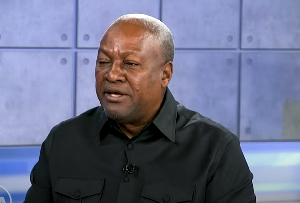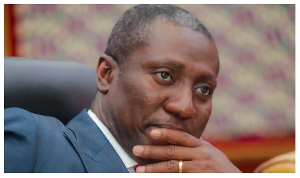AGAINST a backdrop of prevailing improved political stability, lowering inflation, slower depreciation of the cedi and reduced debt, expenditure in telecommunications products and infrastructure in Ghana is predicted to hit US$1.5 billion in 2008, from a projected US$1 billion in 2006. The latter?s figure will be the first in the country?s history. Spending in the industry reached US$384 million in 2003.
According to a yet-to-be launched market forecast, total spending in the telecommunications industry in the country is expected to expand at 31.4% compound annual increase in 2008. ?This represents a significant achievement as compared to the 1999-2003 period. In dollar terms, this period made a gain of 19.5% compound annual increase,? states the 119 page forecast, Telecommunication?s Market in Ghana: Status and Outlook. Spending on fixed lines in the country is projected to grow at a 33.1 % compound annual rate in 2004 ? 2008 to US$ 43 million partly due to faster underlying growth and a more stable cedi. The forecast will be launched in Ghana October 11 in Accra while the New York, USA, and London, UK, launches will take place September 16 and September 21 respectively. The forecast covers fixed lines, mobile communications, payphones, the Internet, the equipment and infrastructure markets. It discusses each of these markets in depth and identifies key trends and developments as well as sets out factors underlying the projections.
In addition, the forecast provides historical information on market segments in the telecommunications industry. ?The relative stability of the cedi will make it easier and relatively less expensive for Ghanaians to purchase telecommunications infrastructure from abroad and will make Ghana more attractive to foreign investors who value stability and currency predictability,? said the forecast.
?In cedi, fixed line spending will increase at a 42.7 percent compound annual rate to ?6.8 trillion in 2008. Mobile will be the fastest growing category at 44.7 percent compounded annually and the largest as well, growing to ?8.8 trillion. Payphone spending will increase at a 30.7percent annual rate to ?651 billion; the internet will rise to ?276 billion, up 40.8 percent on a compound annual basis, and equipment spending will expand to ?2.3 trillion, growing by 29.7 percent on a compound annual basis.?
The forecast is produced by Wilkofsky Gruen Associates, a New York-based consulting company that watches the global telecommunications market and prepares an annual report on the market for the Telecommunications Industry Association in the United States. Kina Telecom, a Ghanaian research and telecommunications company assisted Wilkofsky Gruen in the preparation and publication of the forecast. The report devotes an entire chapter to the regulatory environment, tracing the history of regulatory reforms and their impact on the market. It stated that slow growth historically was not due to lack of demand but to an insufficient telecommunications infrastructure and inadequate capital to improve the infrastructure. ?Growth in the coming years will be fuelled by increased investment in the telecommunications infrastructure that will substantially expand the market,? it observed. (A review of the forecast will be published in this paper soon).
The report cites the passage of the National Communications Authority Act, the liberalisation of the telecommunications industry, improved management at the Ghana Telecom and new sources of financing as factors responsible for the increase in investment. ?Although the initial impact of reforms was slow to take hold, and not all targets were reached, the NCA Act still had a dramatic impact on the market. With many of the initial problems having been resolved, and the NCA now having a board of directors, a regulatory framework, and more experience, Ghana is now poised to realise the principal benefits of reform,? it said.
In an interview with The Statesman, Victor Teppeh, a senior analyst at Kina Telecom and one of the authors of the forecast, said that investors need accurate and reliable information in the Golden Age of Business to do business profitably. ?The existing reports and data are not accurate and are scattered. The cost of getting information is high and that makes it difficult for investors to do market analysis. It is this vacuum that has made Kina Telecom to cooperate with Wilkofsky Gruen to produce the report,? he added.
According to Teppeh, the report will provide the industry information that is currently not available on a systematic basis in a single source. ?Furthermore, this work will provide essential information that will highlight Ghana as a growth market, will attract the interest of investors and other entrepreneurs and will provide them with the information they need to consider opportunities in Ghana. Thus, provide investors in the saturated telecom market in the developed world to seek joint venture partnership and opportunities for investment in the country,? he said.
Click to view details



Business News of Friday, 2 September 2005
Source: The Statesman
















